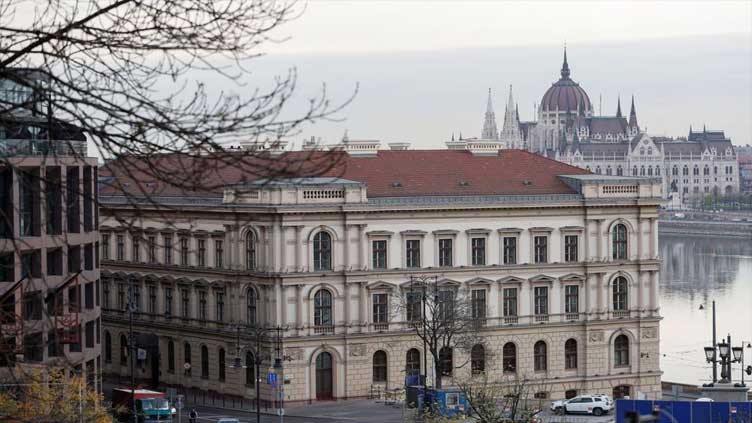International Investment Bank to relocate headquarters from Budapest back to Russia

Business
International Investment Bank to relocate headquarters from Budapest back to Russia
(Reuters) - Russia's International Investment Bank (IIB) will relocate its headquarters from Budapest back to Russia, according to a statement published on the bank's website on Wednesday.
The decision was announced a week after the United States imposed sanctions on three top officials of IIB in Budapest: two Russians and a Hungarian. That move led to Hungary's announcement that it was withdrawing its representatives from the bank and quitting the financial institution.
"IIB has exhausted the basis for further operations from its headquarters in Budapest and in the European Union," the IIB statement said. "The Bank has commenced a relocation of its operations and functions of its headquarters from Hungary to Russia."
After Russia invaded Ukraine in February 2022, Bulgaria, the Czech Republic, Romania and Slovakia ended their participation in the IIB. The Hungarian government took no measures against the bank, which moved its operations to Budapest in 2019.
After announcing that sanctions would be imposed last Wednesday, U.S. Ambassador to Hungary David Pressman said IIB "threatens the security and sovereignty of the Hungarian people, their European neighbours, and their NATO allies".
Hungary, a NATO and EU member, has fostered good ties with Moscow since 2010 under nationalist Prime Minister Viktor Orban, who has avoided personal criticism of Russian President Vladimir Putin despite condemning Russia's invasion of Ukraine. His stance has been criticised by U.S. and European allies.
AMSTERDAM (Reuters) - China is seeking to acquire equipment and knowledge in the Dutch space sector, sometimes in circumvention of export restrictions, the Netherlands' military intelligence agency said on Wednesday.
The agency, known by its Dutch acronym MIVD, said in its 2022 annual report that its analysis "shows the Chinese satellite launch capacity will increase further in the coming years to 100 launches per year".
There have been "various Chinese attempts to acquire military-relevant technology outside the export restrictions. In doing so, the MIVD discovered, among other things, several cover companies that were used for this purpose", it said.
China's embassy in the Netherlands did not immediately respond to a Reuters request for comment.
China has long insisted that its space programme is for peaceful purposes and that it opposes any form of arms race in space. But at the same time, Beijing says its space programme must help protect China’s national security. China also aims to be a major space power by 2030.
MIVD chief Jan Swillers said in the agency's report that China was specifically seeking "launchers with intelligence, surveillance, reconnaissance (ISR) and communication satellites”.
The Chinese want to become a leader in space by developing state-of-the-art quantum communication networks with global coverage, the report said.
The MIVD's partner agency, the Dutch general intelligence agency AIVD, said on Monday that China posed "the greatest threat to Dutch economic security".
In response, China's foreign ministry urged Western officials to abandon what it called a Cold War mentality and stop hyping up the “China threat” narrative.
Beijing's embassy in the Netherlands rejected the AIVD's remarks, saying accusations that Chinese firms were spying were false and that they instead followed Dutch laws and regulations.

